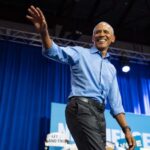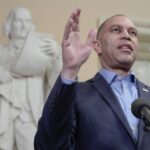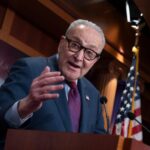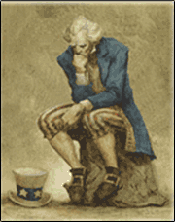
–>
May 19, 2022
Boris Johnson has and is making a greater contribution with his practical actions to the support of Ukraine and defeat of Vladimir Putin, whom Johnson has called a “21st century tyrant,” than the grandstanding Macron in France or most EU members. The difference is stark; Macron has declared there must be “no humiliation of Russia.”
‘); googletag.cmd.push(function () { googletag.display(‘div-gpt-ad-1609268089992-0’); }); }
Johnson has had a successful career. Born in 1964 in Manhattan, he has a mixed pedigree including a maternal great grandfather who was a rabbi in Lithuania. He was educated at top prestigious schools: Eton and Balliol College, Oxford. He was chosen to be president of the Oxford Student Union in 1986. He became a journalist, a favorite on British TV talk shows, author of a number of books, including one on Winston Churchill, and then a conservative Member of Parliament in 2001. He was elected Mayor of London in 2008 and reelected in 2012. He returned to Parliament, becoming a prominent advocate of exiting the EU. He was appointed by Prime Minister Theresa May as foreign minister for a short time, then in 2019 was elected leader of the Conservative Party and became prime minister.
Boris Johnson’s main and immediate task, in addition to the Protocol for Northern Ireland, was to reopen Brexit negotiations and complete British withdrawal from the EU. The date was for Johnson, “the moment when the dawn breaks and the curtain goes up on a new act in our great national drama.” The fundamental irony today is that the country and Johnson, implementor of Brexit, is now leading the defense of Ukraine in the face of Russian aggression and bolder in confronting Russia to a greater extent than Brussels.
An unexpected consequence of Brexit is that Britain has not been isolated and marginalized as many predicted, but has under Johnson become the most active country and a leader in European politics. It is resuming the international role Britain once played, as in the confrontation with Russia in the Baltic during the Crimean war in 1854, and its preparation to send a fleet to protect Copenhagen in 1864 against a threatened German attack. Johnson’s boldness in the Baltic has echoes of strong leaders such as Pitt the Younger, Winston Churchill, and Margaret Thatcher, the Iron Lady who rescued the Falkland Islands.
‘); googletag.cmd.push(function () { googletag.display(‘div-gpt-ad-1609270365559-0’); }); }
It is not too strong to say that Britain has been the foremost European and NATO member in dealing with the Ukraine conflict. The contrast with Macron is telling. The French president was reluctant to agree to sanctions on Russia or to supply heavy weapons to Ukraine. instead of reinforcing NATO, Macron has proposed a new European political community. Macron is also opposed to Ukraine becoming a member either of the EU or NATO. In contrast, Britain has played a decisive role in supplying weapons, in training and equipping the Ukrainians, and in strongly supporting sanctions against Russia.
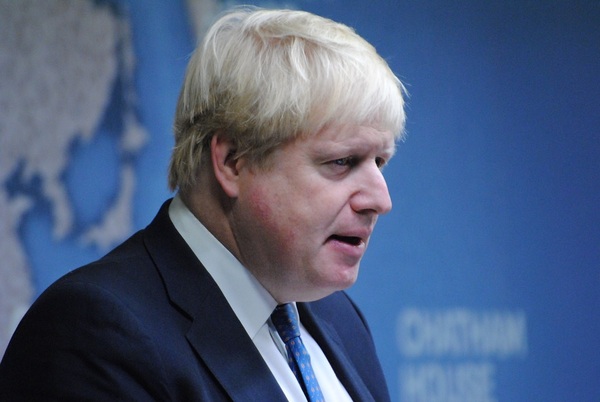 Johnson was the first western leader to visit Kyiv, walk the streets with Zelensky, and address the Ukrainian parliament where he received a standing ovation. Johnson told the Ukrainians, in Churchillian terms, that their heroic defense against Russian aggression would rank as “Ukraine’s finest hour… you have exploded the myth of Putin’s invincibility.”
Johnson was the first western leader to visit Kyiv, walk the streets with Zelensky, and address the Ukrainian parliament where he received a standing ovation. Johnson told the Ukrainians, in Churchillian terms, that their heroic defense against Russian aggression would rank as “Ukraine’s finest hour… you have exploded the myth of Putin’s invincibility.”
Johnson broke new ground in flying to Stockholm and then to Helsinki to see the leaders of Sweden and Finland, two non-aligned countries during the Cold War, before they announced their plans to apply for admission to NATO. In a bold move Johnson signed a mutual security pact with the two countries. Sweden has islands near the Russian base of Kaliningrad, and has a military of 21,500 troops and 100 tanks. Finland has a 830-mile border with Russia that runs close to St. Petersburg, an army of 6,850 troops and 120 tanks.
Britain is aiding these two countries with security measures, Royal Navy warships have begun to patrol the Baltic, while the armies and the RAF are involved in joint exercises. Britain has agreed to share intelligence with Finland and Sweden as part a new northern security network that will include the British-led NATO force in nearby Estonia. This is a dramatic challenge to Putin, who cited NATO enlargement as a main reason for his invasion and who always declared opposition to the expansion of NATO membership, but who on May 16, 2022 was obliged to say he had no problem with the application of the two countries. However, Putin also warned that the “expansion of military infrastructure to the countries will certainly invoke our response.”
Finland and Sweden recognize, as Johnson has asserted, that the security environment has fundamentally changed, and that the only country that threatens European security is Russia. The only problem for the application of the two countries is Turkey, which wants the Nordic countries to halt support for the Kurdish militant groups in their territory, before it agrees to their NATO membership.
Britain is playing a bold role, calling on allies to win the battle for Ukraine and prevent any further aggression by Putin, and to commit to further waves of sanctions as long as Russian troops remain in Ukraine. Sanctions in sensitive areas must remain. There is also need for a program like the Marshall plan to help rebuild Ukraine after the aggression has ended by a complete Russian withdrawal and peace agreement.
‘); googletag.cmd.push(function () { googletag.display(‘div-gpt-ad-1609268078422-0’); }); } if (publir_show_ads) { document.write(“
The solution for security is not the ambiguous European Confederation which President Macron has proposed but more likely an association of Britain with Scandinavian and Eastern European states proposed by Johnson, now the international statesman.
Image: Chatham House
<!– if(page_width_onload <= 479) { document.write("
“); googletag.cmd.push(function() { googletag.display(‘div-gpt-ad-1345489840937-4’); }); } –> If you experience technical problems, please write to [email protected]
FOLLOW US ON
<!–
–>
<!– _qoptions={ qacct:”p-9bKF-NgTuSFM6″ }; ![]() –> <!—-> <!– var addthis_share = { email_template: “new_template” } –>
–> <!—-> <!– var addthis_share = { email_template: “new_template” } –>


